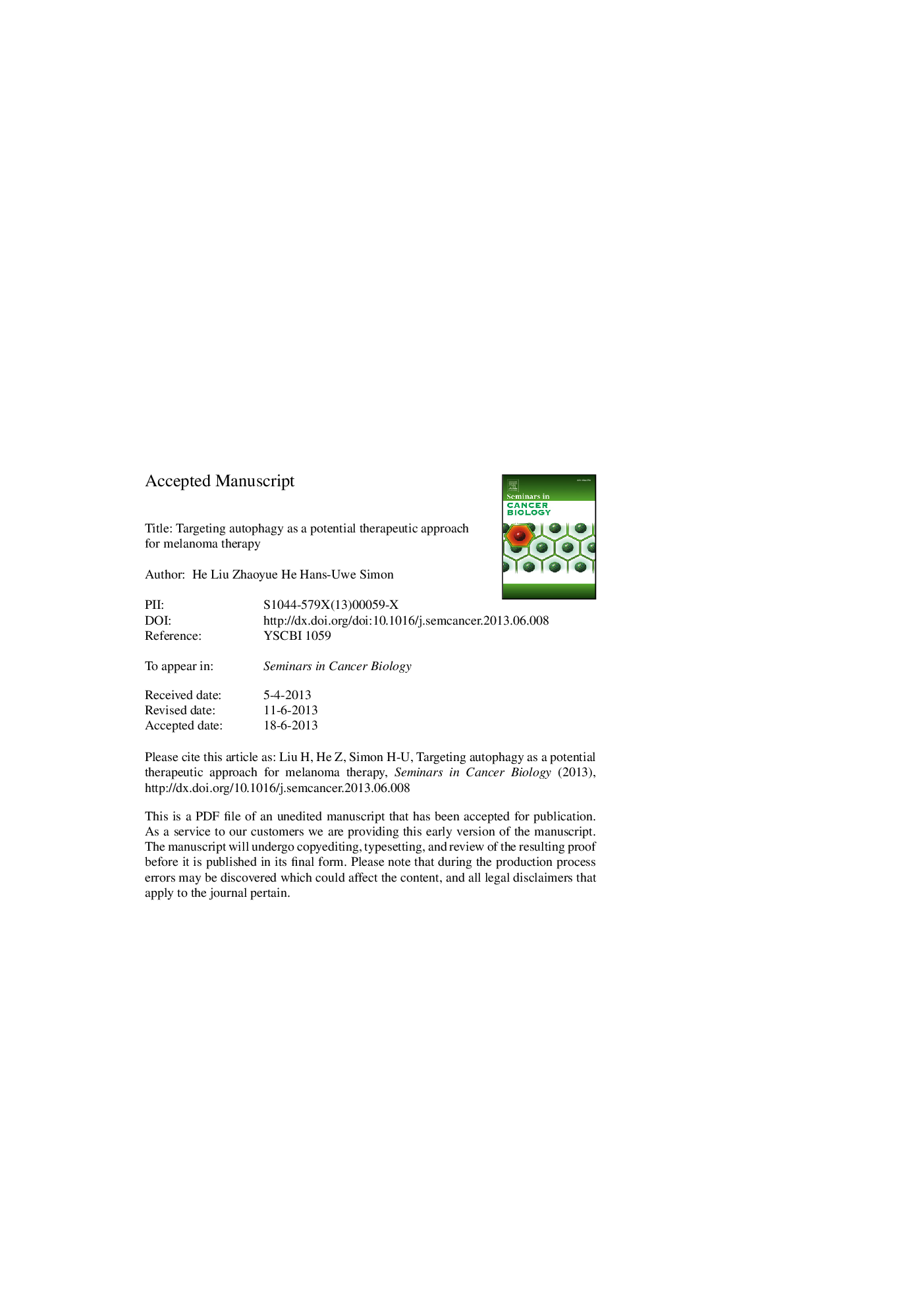| Article ID | Journal | Published Year | Pages | File Type |
|---|---|---|---|---|
| 2023730 | Seminars in Cancer Biology | 2013 | 35 Pages |
Abstract
Melanoma, occurring as a rapidly progressive skin cancer, is resistant to current chemo- and radiotherapy, especially after metastases to distant organs has taken place. Most chemotherapeutic drugs exert their cytotoxic effect by inducing apoptosis, which, however, is often deficient in cancer cells. Thus, it is appropriate to attempt the targeting of alternative pathways, which regulate cellular viability. Recent studies of autophagy, a well-conserved cellular catabolic process, promise to improve the therapeutic outcome in melanoma patients. Although a dual role for autophagy in cancer therapy has been reported, both protecting against and promoting cell death, the potential for using autophagy in cancer therapy seems to be promising. Here, we review the recent literature on the role of autophagy in melanoma with respect to the expression of autophagic markers, the involvement of autophagy in chemo- and immunotherapy, as well as the role of autophagy in hypoxia and altered metabolic pathways employed for melanoma therapy.
Keywords
ULK1APCASsATGLC3RGPPEIHIFPEDF5-ALASKP3-MALAMP2BAFA1PI3PDRiPsUVRAGEndophilin B1CTLA-4unc-51-like kinase 1Ambra1VGPmTORPI3KTMADDRPCLCTL3-methyladenine5-Aminolevulinic acidataxia telangiectasia mutatedDysplastic neviPFsROSargininosuccinate synthetasecytotoxic T-lymphocyte antigen 4Human leukocyte antigenantigen-presenting cellHLAAutophagyimmunotherapyinterferonIFNbafilomycin A1Progression free survivalBif-1MelanomaATMendoplasmic reticulumChemotherapyvertical growth phaseradial growth phaseHypoxia-inducible factorphosphatidylethanolaminephosphoinositide 3-kinaseTRAILcytolytic T lymphocytetumor necrosis factor-related apoptosis-inducing ligandMHCmajor histocompatibility complexdefective ribosomal productsautophagy-relatedTissue microarrayElectron microscopymammalian target of rapamycinHypoxiaDNA damage responselysosomal-associated membrane protein 2microtubule-associated protein 1 light chain 3Polyethylene iminecaveolin-1Cav-1ChloroquineReactive oxygen species
Related Topics
Life Sciences
Biochemistry, Genetics and Molecular Biology
Biochemistry
Authors
He Liu, Zhaoyue He, Hans-Uwe Simon,
